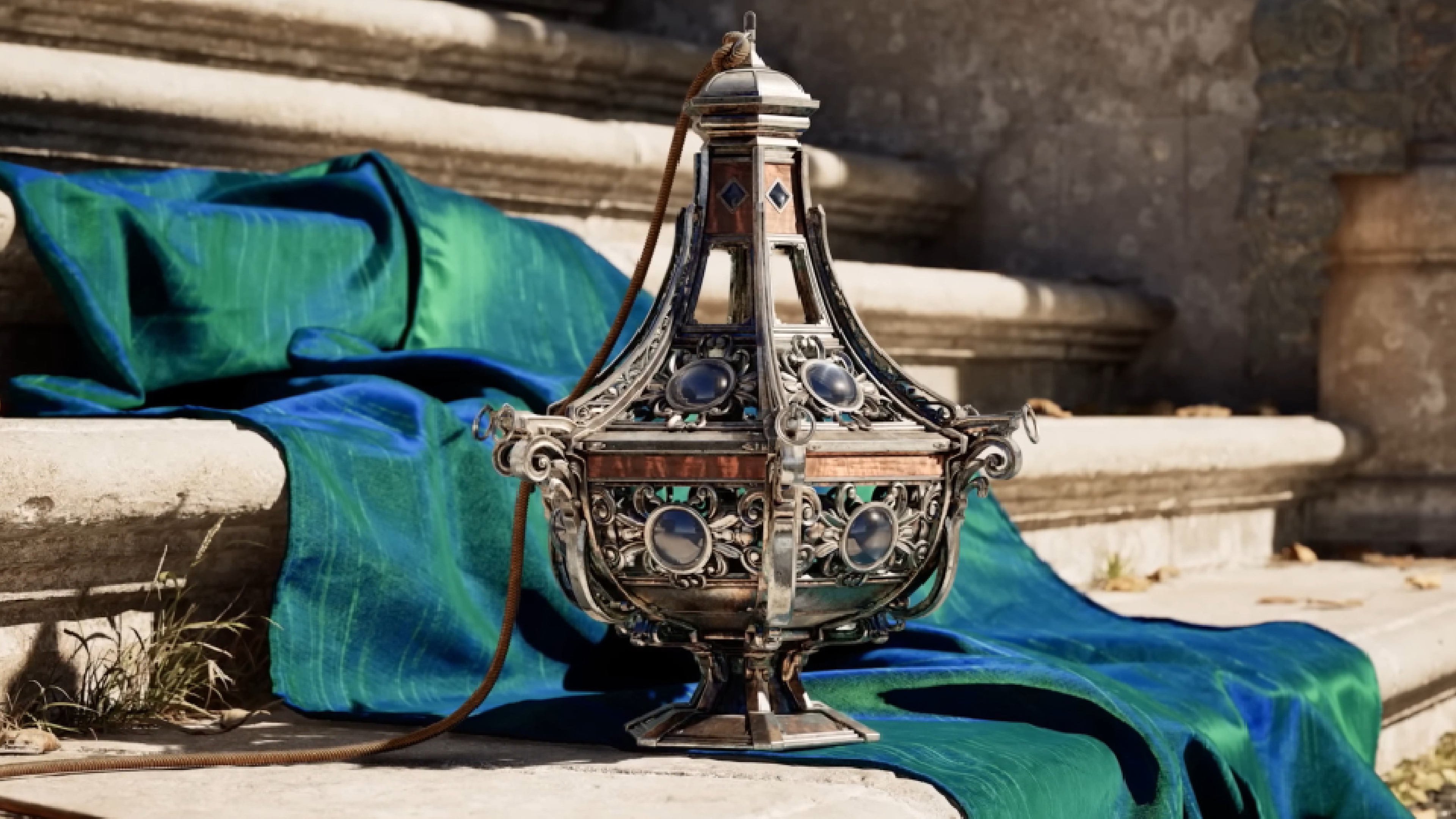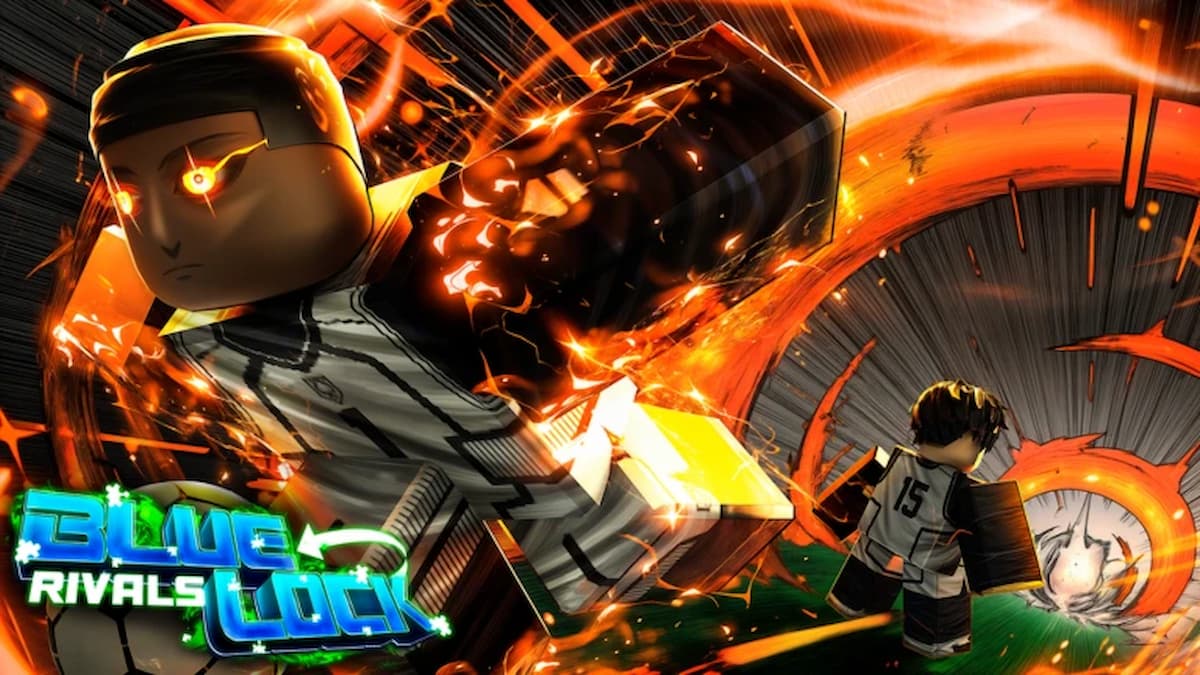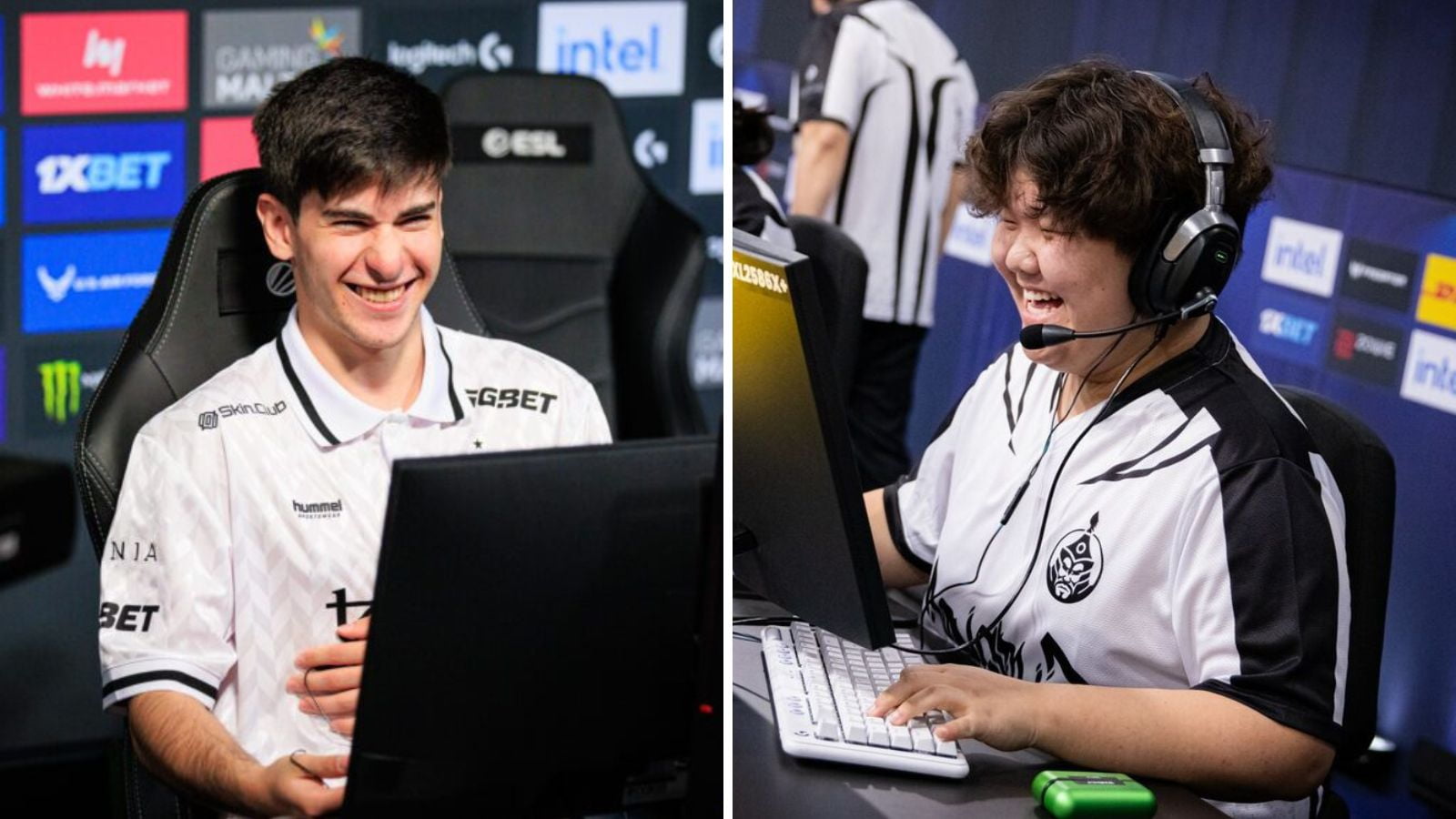
FIFA is dead; long live FIFA. EA’s football simulation behemoth has returned for one last hurrah after a nasty public divorce with its licensor, calling itself ‘The World’s Game’ ahead of a painful name change to EA Sports FC, coming next year. But the tagline transcends its bittersweet pomp because, for all intents and purposes, FIFA 23 fittingly does feel like the same game the world has been playing for the past few years, with its reliable end-to-end gameplay and familiar frustrations.
Even at the end of an era, FIFA 23 marks another year of careful attrition from EA, as several tactical and aesthetic revisions supplement its sturdy gameplay blueprint. Yet it’s also an entry that feels both propped up and consumed by its Ragnarok status, begrudgingly pulling down a ruby-red final curtain as the football game genre descends into a maelstrom of chaos.
Theatrical additions to gameplay, like the ferocious Power Shots, ensure that the FIFA name goes out with a bang rather than a whimper. Holding the bumpers and pressing shoot turns your striker into a raid boss with an interruptible attack, the camera pulling focus as they leather the ball, sending bootstrap shockwaves booming through the PS5’s controller speaker. If you get the angle wrong, FIFA 23’s newly improved acrobatic goalkeepers might be able to stop it with their individually simulated fingers, which have saved my bacon on a few occasions.
This meta-shaking type of shot teases out the halcyon days early 2010s FIFA.
Get it right, though, and if the forward has enough space, it’s likely to end up in the back of the net, regardless of how far out you are. This meta-shaking type of shot teases out the halcyon days of Francesco Totti hit-and-hope long shots seen in early 2010s FIFA, but don’t worry; online multiplayer is still plagued with speedy wingers passing it across the box on the break. Why try and have fun, eh?
While it can’t escape the series’ perennial problem of being over-reliant on pacey players entirely, FIFA 23 does reward careful execution across the board. My fingers hurt from pulling the triggers to jockey dangerous counter-attacks, and the intensity of a pass has to be fine-tuned, which is hard to master but satisfying when you place the perfect through ball. Rogue tackles will also leave you wide open, as holding down the associated buttons for too long can lead to a dangerous, crunching commitment that sometimes pays off – but, more often than not, it leads to a nail-biting penalty. This turns tackling with the last man back into a risky but inherently thrilling endeavour.
This turns tackling with the last man back into a risky but inherently thrilling endeavour.
These changes make FIFA 23 a much slower game than FIFA 22, but the tradeoff is that matches are consistently meaningful. There’s an abundance of drama in each half, usually multiple goals per match across single-player and online, and very few 0-0 draws. Keeping with the theatrics, any goal worth its salt will also result in a victory lap slow-motion replay with overlaid statistics, guaranteeing that hard drives and social feeds the world over will be clogged with viral-friendly goal clips by year’s end. Set Pieces are similarly convincing, affording you more control over the curl and power of your corners and free kicks. It took some time, but the free kicks grew on me eventually, as they’re far more intricate and preferable to the chaotic stick-pulling of previous years. Likewise, Penalty shootouts play out like an intense rhythm game, one in the hands of the gods.
FIFA 23 also includes a visual upgrade – though it’s far more iterative and gradual than last year’s leap to PS5 and Series X – focusing this time on scuff-happy grass and bouncy hairdos. It’s primarily seen in player animations on the pitch rather than actual faces, which still vary wildly in quality between cover stars, regular players, and the cultish crowd. Defenders will poke their leg around the back of a player they’re jockeying, and keepers react convincingly when they don’t have vision, diving to the floor as a defender blocks or stumbling backwards to swat a deflected ball.
The exhausting match commentary is back with a vengeance, but after hearing “he dispatched it with aplomb” one too many times, I was giddily reminded that this year you can turn it all off and attempt to undo the years of psychic damage from all the negging about your play style. This lets you pump in the typically dazzling soundtrack, which offers Bad Bunny bangers and underground earworms from DOSS and Cryalot. There’s something about slotting away a Bruno Guimarães assist while listening to pounding German Drill that makes grinding out a lousy Career Mode season much more palatable.
The microtransaction-ridden Ultimate Team is flush with additions.
Beyond the moment-to-moment gameplay, FIFA 23 predictably focuses its changes on the mode that makes EA the most money. The microtransaction-ridden Ultimate Team is flush with additions, but Career Mode and Volta Football barely get a look-in, which says much about EA’s long-standing attitude to these modes, especially in this supposedly ornamental final FIFA-branded entry. It’s the same gripe we have with Madden NFL 23 and NBA 2K23: despite how much we hate how they tilt the playing field in favor of whoever pays the most, enough people are playing and spending on it that EA just keeps doubling down on it instead of the fair and balanced modes we enjoy more.
What We Said About FIFA 22
FIFA 22 heralds the next generation of virtual football, and while it doesn’t reinvent the ball, the attacking and defending gameplay gains moment-to-moment fluidity. Goalkeeping blunders and visual inconsistencies aside, this year’s FIFA is still one of the most nuanced and enjoyable multiplayer sports games on the market, and new additions across Career Mode and Volta Football have made FIFA’s major modes more fun to play. Microtransactions still loom large, but small iterative changes and the horsepower of new-gen consoles combine to make FIFA 22 feel like a worthwhile upgrade without needing anything revolutionary or terribly exciting from EA’s side. – Jordan Oloman, September 27, 2021
Score: 7
Read the full FIFA 22 review
Player Career has a new personality system that lets you, in most dramatic air quotes, roleplay as your chosen footballer. For me, this amounted to receiving 25 ‘Maverick Points’ for purchasing a ‘High-end Hybrid Mattress’ for a Serbian striker in the K-League, so you can imagine how long I stuck with that.
You can now choose a real manager (or Ted Lasso).
You can now choose a real manager (or Ted Lasso, however real you consider him to be) to play as in Manager Career too, but unless you want to cosplay as a mute Jason Sudekis, or dress Eddie Howe in a lovely sweater vest, there’s not much to do beyond gawp at the awkward cutscenes. The time spent importing AFC Richmond for its brief novelty value could have easily been better used on, for example, implementing Women’s Club Football into Career Mode, but that’s still not included. It’s a shame because the women’s game is such a compelling example of the power of EA’s HyperMotion motion-capture technology, offering authentic animations that dial up the immersive tension.
This year, Volta Football and Pro Clubs have been folded into one neat section, and they coincidentally both suffer from similar problems. As we know, hell is other people, and nowhere is that more apparent than in Pro Clubs, where drop-in games are brimming with wingers who overwhelm the AI with ludicrous calls to pass the ball. It’s fun to develop your create-a-pro into a Shrek-adjacent goal monster with a closet full of silly hats, but when your progression is tied to your in-game rating, you’re incentivised to perform dispossessing skill move runs that even Saint-Maximin wouldn’t bother with.
It seems EA listened to my cries for an enhanced Volta Arcade, so I take full credit.
Unfortunately, FIFA’s street football vehicle, Volta, suffers a similar fate, epitomised by the new ‘Take Flight’ Signature Ability that turns you into an aerial maestro. Because the power relies upon crossing and teamwork, most just pick Power Strike and haphazardly smack the ball after a glory-seeking run. The good news is that it seems EA listened to my cries for an enhanced Volta Arcade, so I take full credit for the fact that it has now been expanded into a moreish battle royale mode of silly minigames and obstacle courses that evoke the best parts of Fall Guys. I still think it’s criminal that it’s only available on weekends, though.
Quelle surprise, Ultimate Team has received the most attention, and the team training mode I’ve long been looking for has arrived in the form of FUT Moments. Moments offers bite-size pockets of FIFA gameplay in the form of rewarding challenges designed to test your shape and figure out how different cards work together. It’s early doors, but there’s tantalising scope to chronicle player careers and recreate immortal moments of football history with this mode. The current selection features highlights from the golden years of Jurgen Klopp and Kylian Mbappe, but in next year’s game, it’d be awesome to see what EA’s team can do with other footballing legends like Pelé and ‘King’ Kazuyoshi Miura.
Elsewhere, there are sweeping changes to the chemistry system. Chemistry is no longer affected by a player’s position in the formation relative to other players, a change that enables greater diversity across leagues and nations. I don’t think it will change anyone’s strategy too much, but it’s nice knowing that you can throw in wildcard players and have more ways to connect them to top-division players. Trying to find the perfect midfielder to hit that coveted ‘33’ chemistry feels very much like a Squad Building Challenge now, which feels intentional. Squad Building Challenges are still a fine way to lose a few hours doing frankly nothing, but EA’s ‘sudoku for football nerds’ is best played on the companion app, away from Ultimate Team’s sluggish console menus.
Trying to find the perfect midfielder to hit that coveted ‘33’ chemistry feels very much like a Squad Building Challenge.
In a dark portent of the football game licensing wars to come, FIFA has lost the J1 League license this year, which meant no more King Kazu. Instead, this caused a pivot to an exciting Bronze and Silver Australian A League team, featuring the feared strike force of Hibs winger Martin Boyle and the aptly named David Ball. Much like last year, my underdog team caused a few rage quits from opponents with million-coin ensembles, exposing Ultimate Team as a gilded farce. I still felt the deep shame of a double-digit thrashing when the pros found me out, though. When more people started rolling in, I quickly noticed that playing three at the back is a quick route to a 3-0 deficit if the opponent’s wingers have any modicum of pace (as they usually do). Overall, it’s par for the course as far as the online multiplayer is concerned, with fidgety twitching and emotions on high across the board; it’s the FIFA we know, at its very frustrating best.
Regardless, Ultimate Team’s bread and butter of buying and selling silly little guys is still impossible to recommend. Even if I still have a bit of fun with it every year without paying, it’s the barbarous nature in which you can quickly be pulled into debt by going full Gollum with one last precious player pack. Beyond consolidating the transfer markets, there have been no meaningful changes to EA’s morally questionable approach to microtransactions, but I did notice that ratings now trickle upwards during the glitzy reveal, which somehow makes it feel even more like a one-armed bandit…
Microtransaction Reaction
Despite consistent pressure from regulators, pay-to-win microtransactions are, unfortunately, still a problem in FIFA 23. Loot boxes appear in the form of player-filled card packs inside FIFA’s popular Ultimate Team mode. You can purchase FIFA Points in bundles, starting at £0.79 for 100 FIFA Points and rising to a staggering £79.99 for 12,000 FIFA Points. A Premium Gold Pack costs 150 FIFA Points and contains 12 gold-rated players or consumables that can be used in-game or sold on the transfer market.
As for the company’s policy, EA told Eurogamer that FUT Lootboxes “are a part of FIFA that players love,” and that “giving players the choice to spend if they want to is fair.” It has no plans to alter its approach to “surprise mechanics” unless laws are passed that force it to. It doesn’t make the situation any better, but it’s worth noting that because of some of those laws you can now set weekly limits on FIFA Points spending and pack opening within Ultimate Team, and see the probability of receiving a highly rated player before opening a pack. FIFA 23 also features time-limited Preview Packs where you can check what is inside a pack before you choose to buy it, but this currently only works for a single card pack that refreshes once per day.






